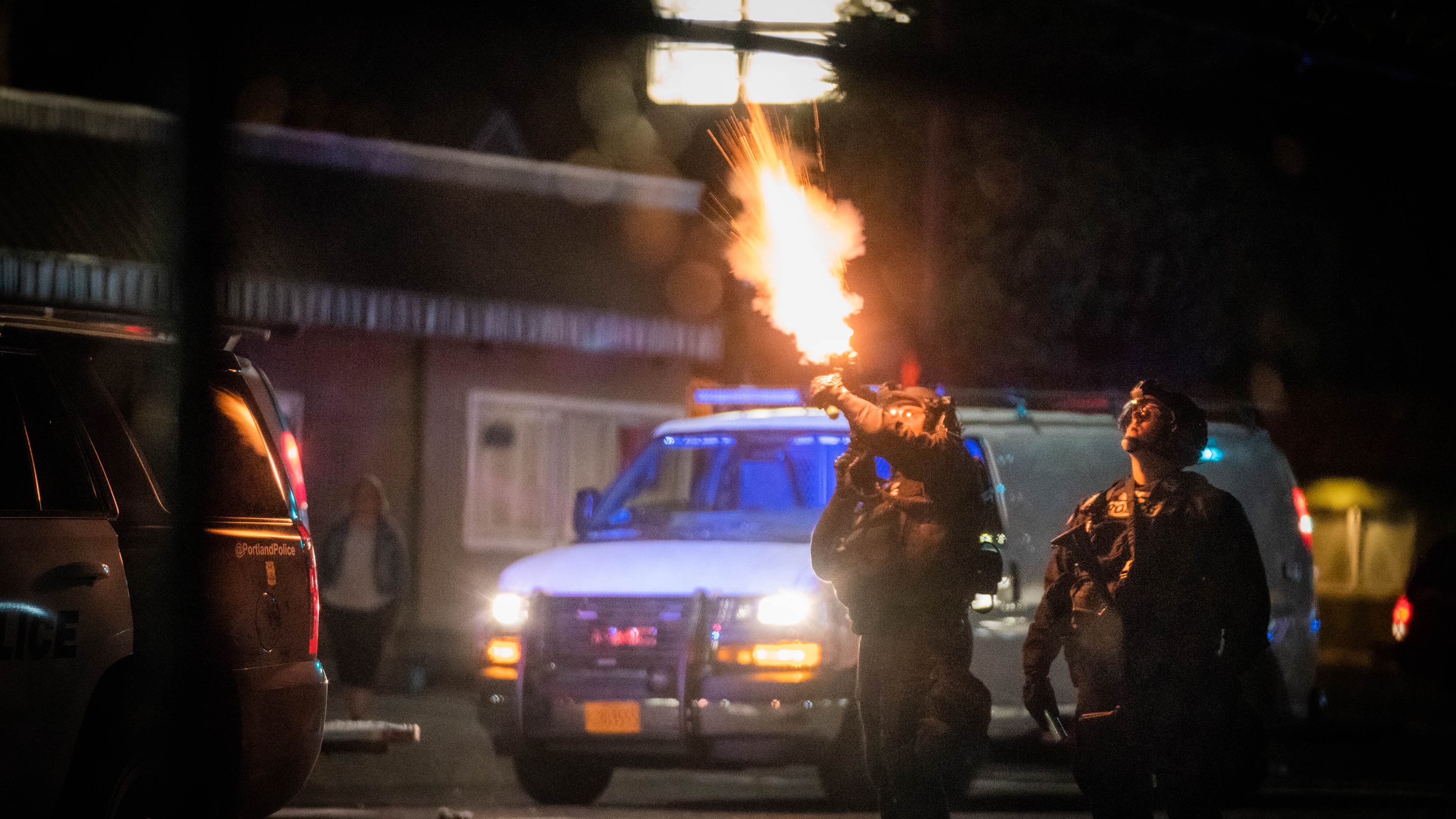In an open letter to Portland Police Chief Chuck Lovell on July 1, City Commissioner Jo Ann Hardesty called on Lovell to immediately stop the use of tear gas and close-range munitions, to change protocols relating to declaring an assembly "unlawful," and to emphasize deescalation at protests.
"Our nurses, teachers and firefighters also have bad days, but we expect them to come to work with courtesy and respect, and that expectation should be extended to officers," Hardesty wrote. "What I've seen of police conduct nightly since protests began a month ago has been increasingly alarming."
Hardesty called on Lovell to make the following changes:
- Immediately drop all charges against reporters who were arrested while covering protests.
- Immediately discontinue the use of tear gas and close-range “rubber” bullets, as well as the LRAD sound system which can be used as a sonic weapon that emits deafening sounds.
- Officers must practice deescalation in any and all situations.
- Increase the size and visibility of officer identification numbers.
- Change protocol immediately so that only the police chief or Mayor Wheeler can declare an assembly unlawful.
"In addition to this," Hardesty wrote, "I would like the bureau to publicly explain the criteria and procedure it uses to declare peaceful protests as unlawful gatherings, who makes that decision, what is the process for that decision, what criteria are used to get to that decision, what mechanisms are in place to ensure the declaration is accurate and in the public's interest?"
The last point is particularly important, because in the past month, police have declared protests to be unlawful inconsistently and without clearly explaining their rationale. Once an assembly has been declared unlawful, police typically proceed to deploy chemical agents and crowd control munitions.
Hardesty also asked the bureau to, within 30 days, identify less harmful crowd control procedures.
"The indiscriminate use of crowd control tactics such as tear gas, LRAD, and rubber bullets create harm to all those in the vicinity of use," Hardesty wrote. "Not only do I believe it unconscionable to use those methods on a single individual, but the fact that these tactics subject many more people to its deleterious effects proves the bureau needs to examine other non-lethal procedures that do not harm Portlanders."
Hardesty notes that since she is not the commissioner-in-charge of the Police Bureau, she does not have the authority to mandate that Lovell make the changes.
"But I cannot stress enough the trust eroded between the community and police," Hardesty wrote. "I hope you heed the community's call for change."
The Portland Police Bureau did not respond immediately to WW's request for comment on the letter.
